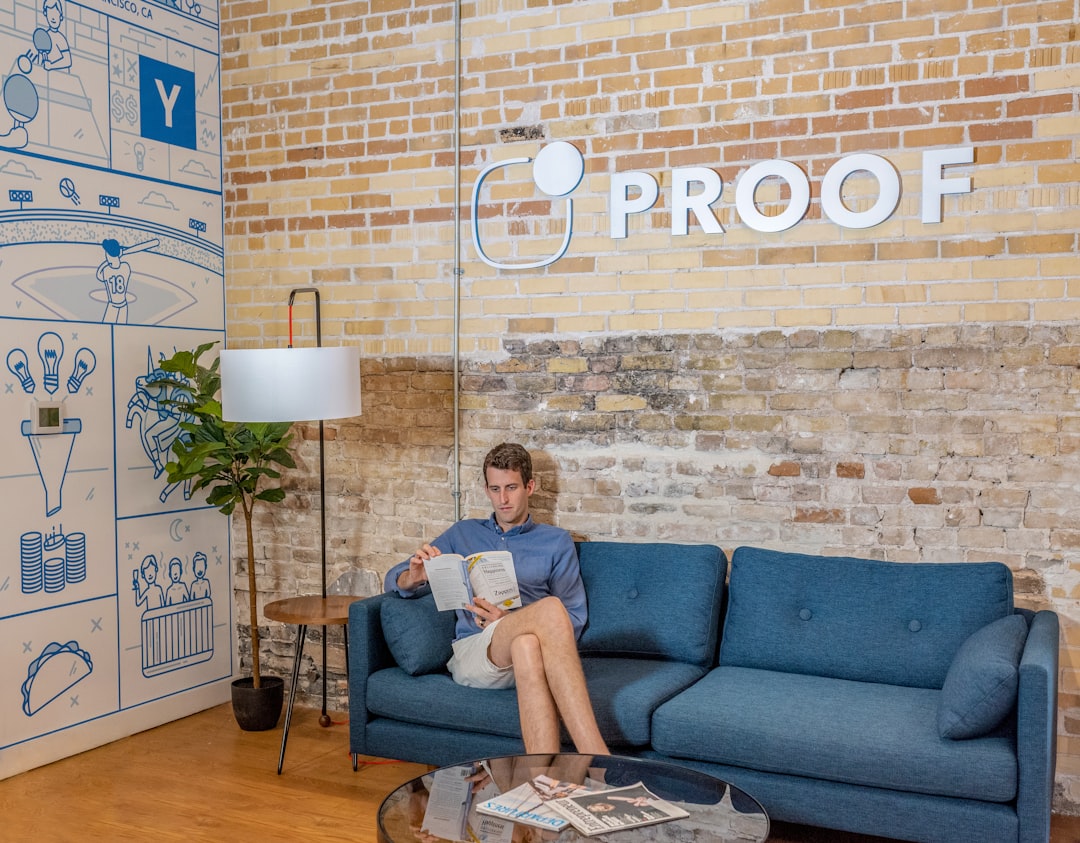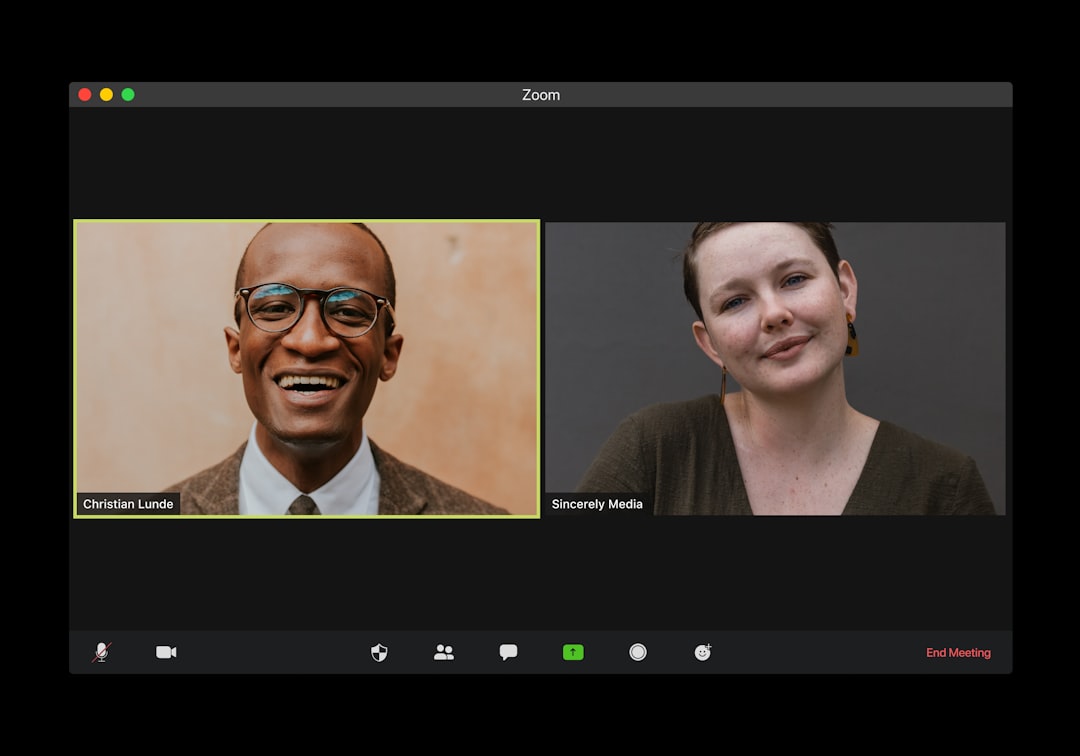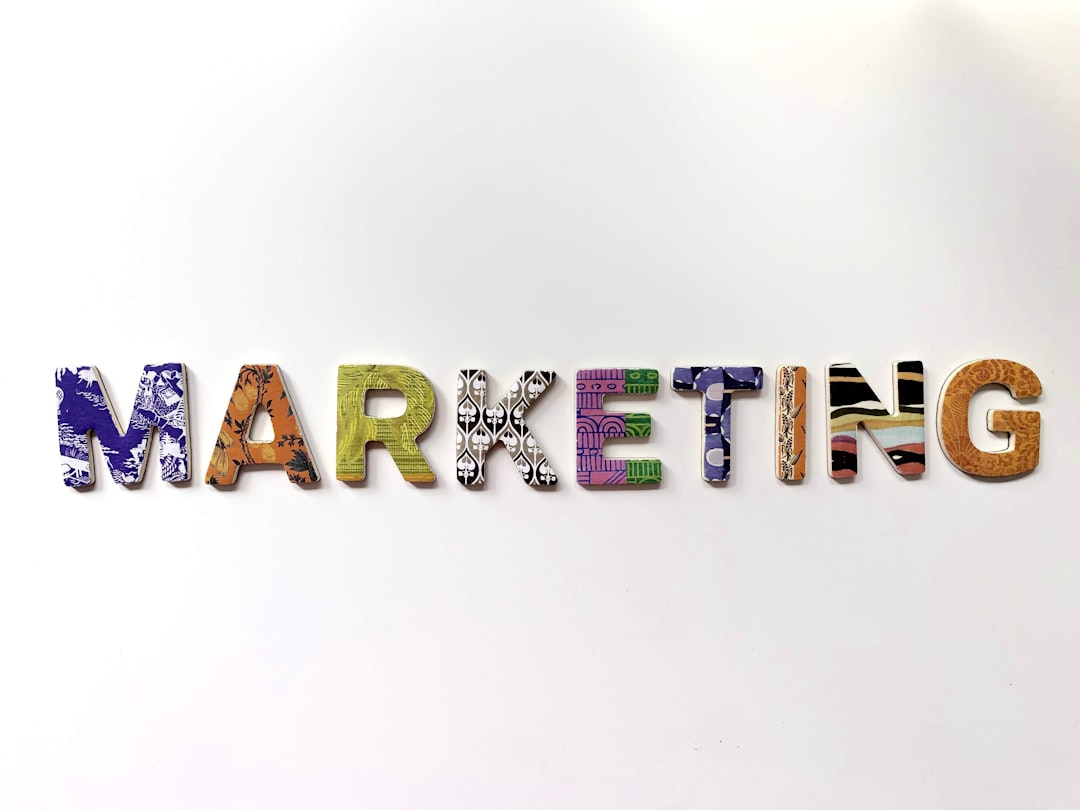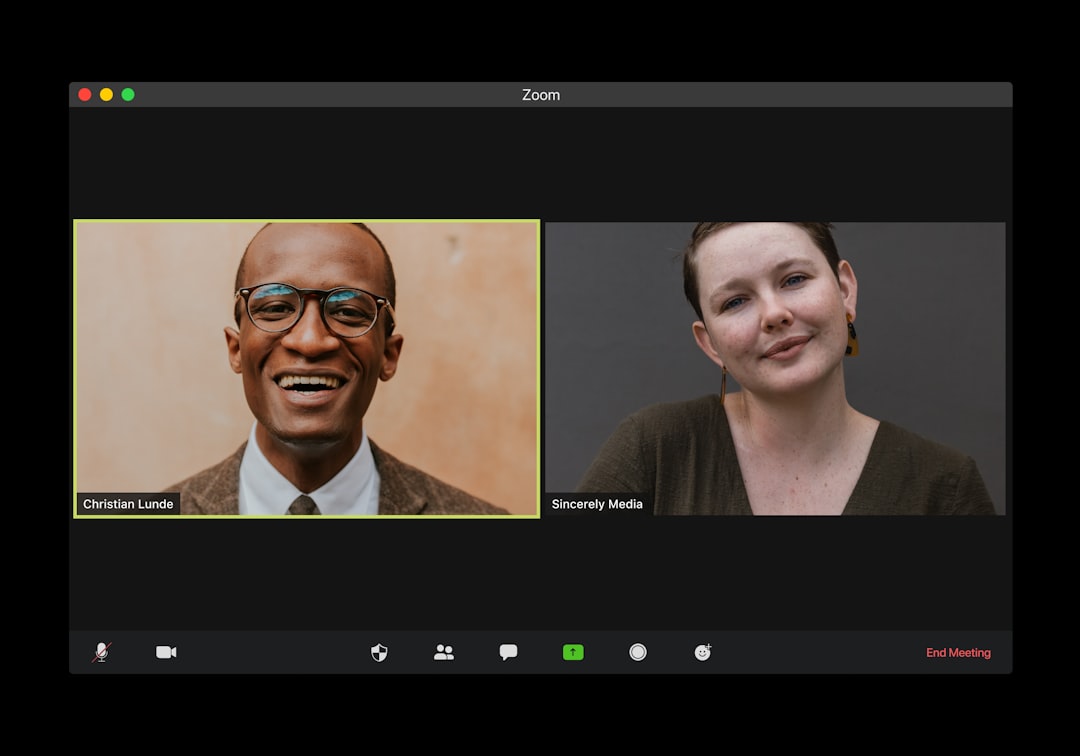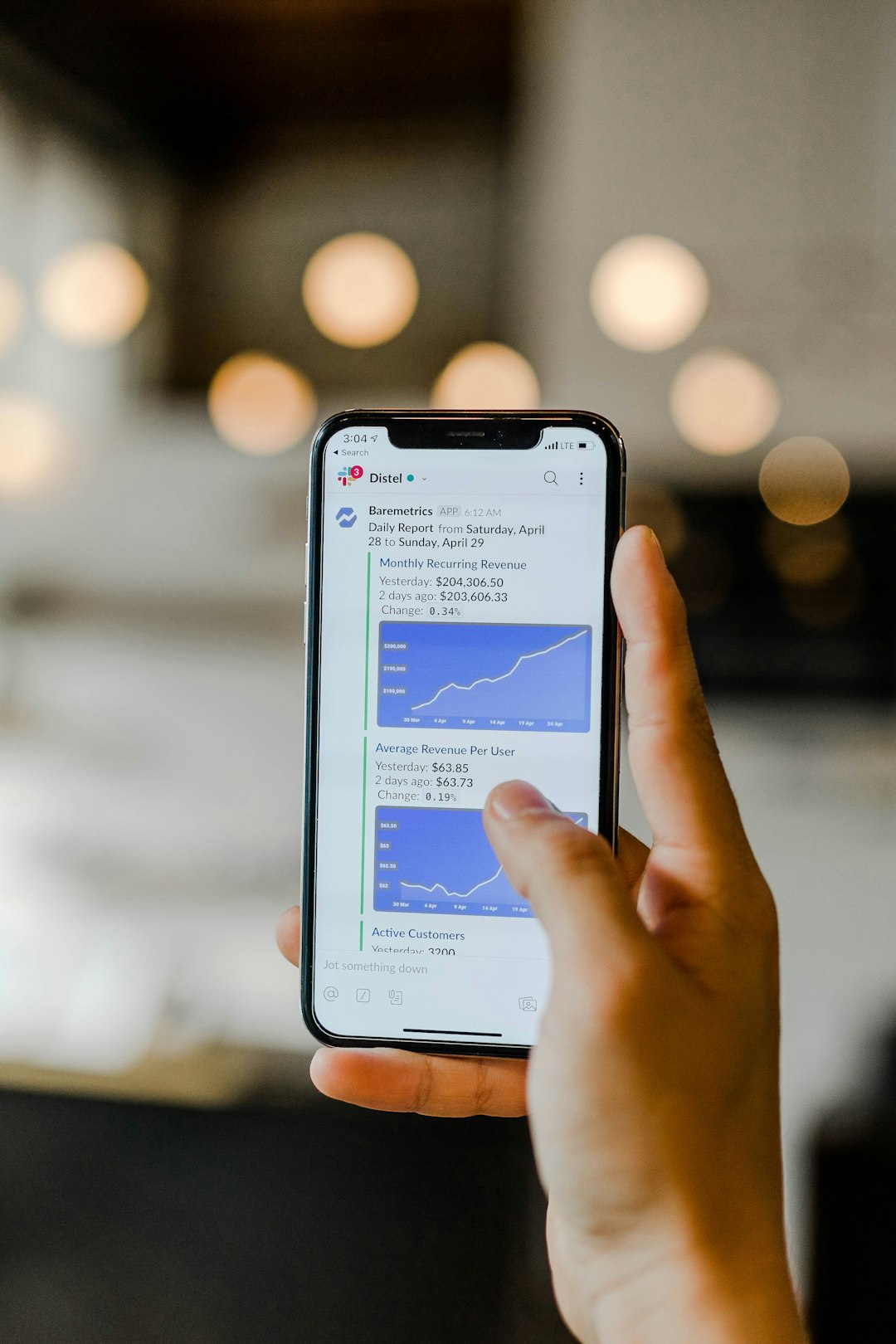The Benefits of Hiring an SEO Consultant
In today’s digital landscape, having a strong online presence is crucial for businesses of all sizes. And one of the most effective ways to improve your online visibility is through search engine optimization (SEO). However, SEO can be a complex and ever-changing field, making it difficult for businesses to keep up and achieve their desired results. This is where an SEO consultant comes in. In this article, we’ll explore the benefits of hiring an SEO consultant and how they can help your business succeed in the digital world.
What is an SEO Consultant?
Before we dive into the benefits of hiring an SEO consultant, let’s first define what an SEO consultant is. An SEO consultant is a professional who specializes in optimizing websites to improve their search engine rankings. They have a deep understanding of search engine algorithms and use various techniques to help businesses rank higher in search engine results pages (SERPs).
Expertise and Knowledge
by Mahmud Ahsan (https://unsplash.com/@mahmudahsan)
One of the main benefits of hiring an SEO consultant is their expertise and knowledge in the field. SEO is a complex and ever-changing field, and it can be challenging for businesses to keep up with the latest trends and techniques. An SEO consultant, on the other hand, is constantly staying up-to-date with the latest changes in search engine algorithms and can provide valuable insights and strategies to improve your website’s rankings.
Customized Strategies
Every business is unique, and therefore, their SEO strategies should be tailored to their specific needs and goals. An SEO consultant will take the time to understand your business, target audience, and goals to create a customized SEO strategy that will yield the best results. This personalized approach is crucial for achieving success in the competitive world of SEO.
Time and Cost-Efficient
Hiring an in-house SEO team can be costly and time-consuming. Not only do you have to pay for their salaries, but you also have to invest in training and tools. On the other hand, hiring an SEO consultant can be a more cost and time-efficient option. You only pay for the services you need, and you can save time by leaving the SEO work to the experts while you focus on other aspects of your business.
Access to the Latest Tools and Techniques
by ThisisEngineering RAEng (https://unsplash.com/@thisisengineering)
SEO consultants have access to a wide range of tools and techniques that can help improve your website’s rankings. These tools can be expensive and require specialized knowledge to use effectively. By hiring an SEO consultant, you can benefit from their expertise and access to these tools without having to invest in them yourself.
Better ROI
SEO is a long-term investment, and it can take time to see results. However, with the help of an SEO consultant, you can achieve a better return on investment (ROI) in the long run. They can help you create a solid SEO strategy that will yield long-term results and improve your website’s visibility, leading to increased traffic and potential customers.
How Can an SEO Consultant Help Your Business?
Now that we’ve explored the benefits of hiring an SEO consultant let’s dive into how they can help your business succeed in the digital world.
Improve Your Website’s Visibility
The main goal of SEO is to improve your website’s visibility in search engine results pages (SERPs). An SEO consultant can help you achieve this by optimizing your website’s content, structure, and technical aspects. By improving your website’s visibility, you can attract more organic traffic and potential customers.
Increase Website Traffic
by Lee Campbell (https://unsplash.com/@leecampbell)
With improved visibility comes increased website traffic. An SEO consultant can help you attract more organic traffic to your website by targeting relevant keywords, optimizing your website’s content, and improving its overall user experience. This can lead to more potential customers and ultimately, increased sales and revenue.
Stay Ahead of the Competition
In today’s digital landscape, businesses are constantly competing for online visibility. An SEO consultant can help you stay ahead of the competition by keeping up with the latest trends and techniques in the field. They can also conduct competitor analysis to identify areas where you can improve and stand out from the competition.
Improve User Experience
User experience (UX) is a crucial factor in SEO. Search engines prioritize websites that provide a positive user experience, and an SEO consultant can help you achieve this. They can optimize your website’s design, navigation, and content to ensure a seamless and enjoyable experience for your website visitors.
Track and Analyze Results
by Kaleidico (https://unsplash.com/@kaleidico)
An SEO consultant can also help you track and analyze your website’s performance. They can provide detailed reports and insights on your website’s traffic, rankings, and other key metrics. This information can help you make informed decisions and adjust your SEO strategy accordingly to achieve better results.
How to Choose the Right SEO Consultant
Now that you understand the benefits of hiring an SEO consultant, it’s important to know how to choose the right one for your business. Here are some factors to consider when looking for an SEO consultant:
Experience and Expertise
When hiring an SEO consultant, it’s crucial to consider their experience and expertise in the field. Look for someone who has a proven track record of success and has experience working with businesses similar to yours.
Communication and Collaboration
by Mapbox (https://unsplash.com/@mapbox)
Effective communication and collaboration are key to a successful partnership with an SEO consultant. Look for someone who is willing to listen to your needs and goals and can provide regular updates and reports on their progress.
Transparency and Ethics
It’s important to work with an SEO consultant who follows ethical practices and is transparent about their strategies and techniques. Avoid consultants who use black hat SEO tactics, as they can harm your website’s rankings in the long run.
Cost and Budget
Finally, consider your budget and the cost of hiring an SEO consultant. While it’s important to invest in quality services, make sure to choose a consultant that fits within your budget and offers a good return on investment.
Conclusion
In today’s digital landscape, having a strong online presence is crucial for businesses of all sizes. And hiring an SEO consultant can help you achieve this by improving your website’s visibility, increasing website traffic, and staying ahead of the competition. By considering the factors mentioned above, you can choose the right SEO consultant for your business and achieve success in the digital world.
What to Expect from an SEO Consultant
Are you looking to improve your website’s search engine ranking and drive more traffic to your business? If so, you may have considered hiring an SEO consultant. But what exactly does an SEO consultant do, and what can you expect from working with one?
In this article, we’ll explore the role of an SEO consultant and what you can expect from their services.
What is an SEO Consultant?
An SEO consultant is a professional who specializes in search engine optimization (SEO). They work with businesses to improve their online presence and increase their visibility in search engine results pages (SERPs).
SEO consultants have a deep understanding of how search engines work and what factors influence a website’s ranking. They use this knowledge to develop strategies and tactics that can help businesses improve their search engine ranking and drive more organic traffic to their website.
The Role of an SEO Consultant
The primary role of an SEO consultant is to help businesses improve their online visibility and drive more traffic to their website. They do this by analyzing a website’s current SEO performance, identifying areas for improvement, and implementing strategies to boost its ranking in search engine results.
SEO consultants also stay up-to-date with the latest search engine algorithms and trends to ensure their strategies are effective and in line with best practices.
What Can You Expect from an SEO Consultant?
Working with an SEO consultant can bring numerous benefits to your business. Here are some of the things you can expect from their services.
A Comprehensive SEO Audit
by Myriam Jessier (https://unsplash.com/@mjessier)
The first step an SEO consultant will take is to conduct a thorough audit of your website’s current SEO performance. This involves analyzing your website’s structure, content, and backlink profile to identify any issues that may be hindering its ranking.
The audit will also include a review of your competitors’ websites to identify areas where you can improve and gain a competitive advantage.
Customized SEO Strategy
Based on the results of the SEO audit, an SEO consultant will develop a customized strategy tailored to your business’s specific needs and goals. This strategy will outline the steps needed to improve your website’s SEO and increase its visibility in search engine results.
The strategy may include on-page optimization, content creation, backlink building, and other tactics to improve your website’s ranking and drive more traffic.
Ongoing Monitoring and Reporting
SEO is an ongoing process, and an SEO consultant will continue to monitor your website’s performance and make adjustments as needed. They will also provide regular reports to track progress and show the impact of their strategies on your website’s ranking and traffic.
Expertise and Knowledge
by Bram Naus (https://unsplash.com/@bramnaus)
One of the most significant benefits of working with an SEO consultant is their expertise and knowledge in the field. They have a deep understanding of how search engines work and what factors influence a website’s ranking.
They also stay up-to-date with the latest trends and algorithm changes, ensuring that their strategies are effective and in line with best practices.
Increased Online Visibility and Traffic
The ultimate goal of working with an SEO consultant is to improve your website’s online visibility and drive more traffic to your business. By implementing effective SEO strategies, an SEO consultant can help your website rank higher in search engine results, making it more visible to potential customers.
This increased visibility can lead to more organic traffic to your website, which can ultimately result in more leads and conversions for your business.
How to Choose the Right SEO Consultant
When looking for an SEO consultant, it’s essential to choose the right one for your business’s specific needs. Here are some factors to consider when selecting an SEO consultant.
Experience and Track Record
When choosing an SEO consultant, it’s crucial to consider their experience and track record. Look for consultants who have a proven track record of success and have worked with businesses similar to yours.
You can also ask for case studies or references from past clients to get a better understanding of their expertise and results.
Communication and Collaboration
by National Cancer Institute (https://unsplash.com/@nci)
Effective communication and collaboration are essential when working with an SEO consultant. They should be able to explain their strategies and tactics clearly and work with you to develop a customized plan that aligns with your business goals.
They should also be open to feedback and willing to make adjustments as needed to ensure the success of their strategies.
Transparency and Ethics
It’s crucial to work with an SEO consultant who follows ethical practices and is transparent about their strategies and tactics. Avoid consultants who use black hat techniques or make unrealistic promises about quick results.
An ethical SEO consultant will use white hat techniques and provide realistic expectations for the timeline and results of their strategies.
Real-World Examples of Successful SEO Consulting
Here are some real-world examples of businesses that have seen success from working with an SEO consultant.
A Local Business in Rennes
A local business in Rennes, France, was struggling to attract customers through their website. They hired a local SEO consultant who conducted an audit of their website and developed a customized SEO strategy.
The consultant optimized their website’s content, improved its structure, and built backlinks from relevant local websites. As a result, the business saw a significant increase in organic traffic and an increase in leads and conversions.
An E-commerce Business in Toulouse
An e-commerce business in Toulouse, France, was looking to increase its online sales and improve its search engine ranking. They hired an SEO consultant who conducted an audit of their website and developed a customized SEO strategy.
The consultant optimized their website’s product descriptions, improved its site structure, and implemented a content marketing strategy. As a result, the business saw a significant increase in organic traffic and a boost in online sales.
Conclusion
Working with an SEO consultant can bring numerous benefits to your business, including increased online visibility, more organic traffic, and improved lead generation and conversions. By choosing the right consultant and collaborating effectively, you can see significant improvements in your website’s search engine ranking and overall online presence.
If you’re looking to improve your website’s SEO and drive more traffic to your business, consider hiring an SEO consultant today. With their expertise and knowledge, they can help you achieve your business goals and see long-term success in your online presence.
Top Qualities to Look for in an SEO Consultant
In today’s digital landscape, having a strong online presence is crucial for businesses of all sizes. And one of the most effective ways to improve your online visibility is through search engine optimization (SEO). However, SEO can be a complex and ever-changing field, making it challenging for businesses to navigate on their own. That’s where an SEO consultant comes in.
An SEO consultant is a professional who specializes in optimizing websites to rank higher in search engine results pages (SERPs). They have the knowledge, skills, and experience to help businesses improve their online visibility and drive more organic traffic to their websites. But with so many SEO consultants out there, how do you know which one is the right fit for your business? In this article, we’ll discuss the top qualities to look for in an SEO consultant to ensure you’re making the best choice for your business.
The Importance of Hiring an SEO Consultant
Before we dive into the qualities to look for in an SEO consultant, let’s first understand why hiring one is essential for your business.
Expertise and Experience
by Lewis Kang’ethe Ngugi (https://unsplash.com/@ngeshlew)
SEO is a complex and ever-changing field, and it takes years of experience and continuous learning to become an expert in it. By hiring an SEO consultant, you’re gaining access to their expertise and experience, which can help you achieve better results in a shorter amount of time.
Time and Cost-Efficiency
SEO is a time-consuming process that requires a lot of effort and resources. By hiring an SEO consultant, you’re freeing up your time and resources to focus on other aspects of your business while still reaping the benefits of SEO.
Staying Up-to-Date with Industry Trends
SEO is constantly evolving, and what worked yesterday may not work today. An SEO consultant stays up-to-date with the latest industry trends and algorithm updates, ensuring your website is always optimized for maximum visibility.
Top Qualities to Look for in an SEO Consultant
Now that we understand the importance of hiring an SEO consultant let’s discuss the top qualities to look for in one.
Proven Track Record of Success
by Austin Distel (https://unsplash.com/@austindistel)
When looking for an SEO consultant, it’s crucial to choose one with a proven track record of success. Ask for case studies or examples of their previous work to see the results they’ve achieved for their clients. A reputable SEO consultant will have no problem providing you with this information.
Strong Communication Skills
Effective communication is key to any successful business relationship, and the same goes for working with an SEO consultant. They should be able to explain their strategies and recommendations in a way that’s easy for you to understand, regardless of your level of technical knowledge.
Up-to-Date Knowledge of SEO Best Practices
As mentioned earlier, SEO is a constantly evolving field, and what worked yesterday may not work today. A good SEO consultant stays up-to-date with the latest industry trends and algorithm updates to ensure their strategies are effective and in line with current best practices.
Customized Strategies
by Alizée Baudez (https://unsplash.com/@alizeebaudez)
Every business is unique, and so are their SEO needs. A good SEO consultant will take the time to understand your business, target audience, and goals to create a customized strategy that works for you. Beware of consultants who offer a one-size-fits-all approach, as it’s unlikely to yield the best results for your business.
Transparency and Honesty
SEO is not a quick fix, and it takes time to see results. A reputable SEO consultant will be transparent and honest about the timeline and expectations for your SEO efforts. They should also be upfront about any potential challenges or limitations that may affect your results.
Knowledge of Local SEO
If your business has a physical location, it’s crucial to have a strong presence in local search results. A good SEO consultant will have a deep understanding of local SEO and how to optimize your website for local searches.
Ability to Measure and Analyze Results
by Alexis Brown (https://unsplash.com/@alexisrbrown)
An essential aspect of SEO is measuring and analyzing results to determine the effectiveness of your strategies. A good SEO consultant will have the tools and knowledge to track and analyze your website’s performance and make data-driven decisions to improve your SEO efforts continually.
Collaborative and Team Player
SEO is not a one-person job, and it requires collaboration between different teams, such as marketing, web development, and content creation. A good SEO consultant should be a team player and able to work collaboratively with your internal teams to achieve your SEO goals.
Knowledge of Other Digital Marketing Strategies
While SEO is a crucial aspect of digital marketing, it’s not the only one. A good SEO consultant should have a broad understanding of other digital marketing strategies, such as social media marketing, content marketing, and PPC, to create a holistic approach to your online presence.
Real-World Examples of Successful SEO Consultants
Now that we’ve discussed the top qualities to look for in an SEO consultant let’s look at some real-world examples of successful SEO consultants.
Consultant SEO Toulouse
by Austin Distel (https://unsplash.com/@austindistel)
Consultant SEO Toulouse is a leading SEO consultant in the Toulouse, France area. They have a proven track record of success, with numerous case studies showcasing their ability to drive organic traffic and improve search engine rankings for their clients. They also have a strong understanding of local SEO, making them a top choice for businesses in the Toulouse area.
Consultant SEO Rennes
Consultant SEO Rennes is another top SEO consultant in France, specializing in helping businesses in the Rennes area improve their online visibility. They have a strong focus on customized strategies and effective communication, making them a top choice for businesses looking for a personalized approach to SEO.
How to Find the Right SEO Consultant for Your Business
Now that you know the top qualities to look for in an SEO consultant, here are some tips to help you find the right one for your business.
Ask for Recommendations
by visuals (https://unsplash.com/@visuals)
One of the best ways to find a reputable SEO consultant is by asking for recommendations from other business owners or professionals in your network. They can provide you with honest feedback and recommendations based on their personal experiences.
Do Your Research
Before hiring an SEO consultant, do your research. Look for reviews, case studies, and examples of their previous work to get a better understanding of their expertise and track record of success.
Schedule a Consultation
Most SEO consultants offer a free consultation to discuss your business’s needs and goals. Take advantage of this opportunity to get a feel for their communication style, expertise, and approach to SEO.
Conclusion
Hiring an SEO consultant is a crucial step in improving your online visibility and driving more organic traffic to your website. By looking for these top qualities in an SEO consultant, you can ensure you’re making the best choice for your business and setting yourself up for success in the digital landscape.
Full Service Marketing: A Comprehensive Approach
In today’s fast-paced digital landscape, businesses need to have a strong online presence to stay competitive. This is where full service marketing comes into play.
Full service marketing is a comprehensive approach to marketing that covers all aspects of a business’s online presence, from branding to digital marketing strategies. In this article, we’ll dive into what full service marketing is, why it’s important, and how it can benefit your business.
What is Full Service Marketing?
Full service marketing is a holistic approach to marketing that covers all aspects of a business’s online presence. This includes branding, website design and development, search engine optimization (SEO), social media management, content creation, and digital advertising.
A full service marketing agency offers a one-stop-shop for businesses looking to establish or improve their online presence. By providing a comprehensive range of services, a full service marketing agency can ensure that all aspects of a business’s online presence are cohesive and aligned with their overall marketing goals.
Branding Services
by Efe Kurnaz (https://unsplash.com/@efekurnaz)
Branding is a crucial aspect of any business’s marketing strategy. It is the process of creating a unique identity for a business that sets it apart from its competitors. A full service marketing agency can help businesses develop a strong brand identity through logo design, brand messaging, and brand guidelines.
Brand guidelines are a set of rules and guidelines that dictate how a business’s brand should be represented across all platforms. This ensures consistency and helps to establish a strong brand image in the minds of consumers.
Website Design and Development
In today’s digital age, a business’s website is often the first point of contact with potential customers. A full service marketing agency can help businesses create a professional and user-friendly website that accurately represents their brand and effectively communicates their products or services.
Website design and development services may include creating a responsive design that is optimized for all devices, implementing SEO best practices, and integrating social media and other digital marketing strategies.
Search Engine Optimization (SEO)
SEO is the process of optimizing a website to rank higher in search engine results pages (SERPs). A full service marketing agency can help businesses improve their website’s SEO through keyword research, on-page optimization, and link building strategies.
By improving a website’s SEO, businesses can increase their online visibility and attract more organic traffic to their website. This can lead to more leads and conversions, ultimately driving business growth.
Social Media Management
by kuu akura (https://unsplash.com/@akurakuu)
Social media has become an essential part of any business’s marketing strategy. A full service marketing agency can help businesses establish a strong social media presence by creating and managing social media accounts, developing a content strategy, and engaging with followers.
Social media management services may also include social media advertising, which can help businesses reach a larger audience and drive more conversions.
Content Creation
Content creation is a crucial aspect of any digital marketing strategy. A full service marketing agency can help businesses create high-quality and engaging content for their website, social media, and other digital platforms.
Content creation services may include blog writing, video production, graphic design, and email marketing. By consistently creating valuable content, businesses can establish themselves as industry leaders and attract more potential customers.
Digital Advertising
Digital advertising is a cost-effective way for businesses to reach a targeted audience and drive conversions. A full service marketing agency can help businesses create and manage digital ad campaigns on platforms such as Google Ads, Facebook Ads, and Instagram Ads.
By utilizing digital advertising, businesses can increase their online visibility and attract more potential customers to their website.
Why is Full Service Marketing Important?
Now that we’ve covered what full service marketing is, let’s explore why it’s important for businesses.
A Comprehensive Approach
by Jason Leung (https://unsplash.com/@ninjason)
One of the main benefits of full service marketing is its comprehensive approach. By offering a wide range of services, a full service marketing agency can ensure that all aspects of a business’s online presence are cohesive and aligned with their overall marketing goals.
This eliminates the need for businesses to work with multiple agencies or freelancers, saving time and resources. It also ensures that all marketing efforts are working towards the same goal, resulting in a more effective and efficient marketing strategy.
Expertise and Experience
Full service marketing agencies have a team of experts with diverse skill sets and experience. This means that businesses can benefit from the knowledge and experience of professionals in various areas of marketing, without having to hire multiple individuals.
This expertise and experience can help businesses develop a strong and effective marketing strategy that drives results.
Cost-Effective
Working with a full service marketing agency can also be more cost-effective for businesses. Instead of hiring multiple individuals or agencies for different aspects of their marketing, businesses can save money by working with one agency that offers a comprehensive range of services.
This also eliminates the need for businesses to invest in expensive marketing tools and software, as full service marketing agencies often have access to these resources.
Real-World Examples of Full Service Marketing
Agência de Marketing Digital Full Service
by Grab (https://unsplash.com/@grab)
Agência de Marketing Digital Full Service is a full service marketing agency based in Brazil. They offer a comprehensive range of services, including branding, website design and development, SEO, social media management, content creation, and digital advertising.
Their approach to full service marketing has helped numerous businesses in Brazil establish a strong online presence and drive business growth.
Branding Services by Full Service Marketing Agency
by Merakist (https://unsplash.com/@merakist)
Brandastic is a full service marketing agency based in the United States. They offer branding services, website design and development, SEO, social media management, content creation, and digital advertising.
Their branding services have helped businesses of all sizes establish a strong brand identity and stand out in their respective industries.
Conclusion
Full service marketing is a comprehensive approach to marketing that covers all aspects of a business’s online presence. By working with a full service marketing agency, businesses can benefit from a cohesive and effective marketing strategy that drives results.
From branding to digital advertising, a full service marketing agency can help businesses establish a strong online presence and drive business growth. Consider working with a full service marketing agency to take your business to the next level.
How Full Service Marketing Can Help
In today’s fast-paced digital world, businesses need to have a strong online presence to stay competitive. This is where full service marketing comes in. A full service marketing bureau offers a comprehensive range of services to help businesses reach their target audience and achieve their marketing goals.
In this article, we’ll explore what full service marketing is and how it can help businesses grow.
What is Full Service Marketing?
Full service marketing is a comprehensive approach to marketing that involves a wide range of services to help businesses reach their target audience and achieve their marketing goals. This includes everything from branding and design to digital marketing and advertising.
A full service marketing bureau offers all of these services under one roof, making it easier for businesses to manage their marketing efforts and ensure consistency across all channels.
Branding and Design
by 2H Media (https://unsplash.com/@2hmedia)
Branding and design are crucial components of any marketing strategy. A full service marketing bureau can help businesses create a strong brand identity that resonates with their target audience. This includes designing logos, creating brand guidelines, and developing a consistent visual identity across all marketing materials.
Digital Marketing
Digital marketing is a broad term that encompasses a range of online marketing tactics, including search engine optimization (SEO), social media marketing, email marketing, and more. A full service marketing bureau can help businesses develop and implement a digital marketing strategy that drives traffic, leads, and conversions.
Advertising
Advertising is an essential part of any marketing strategy. A full service marketing bureau can help businesses create and execute effective advertising campaigns across various channels, including print, TV, radio, and digital platforms.
How Can Full Service Marketing Help Businesses?
Now that we have a better understanding of what full service marketing is, let’s explore how it can help businesses grow and achieve their marketing goals.
Saves Time and Resources
by Campaign Creators (https://unsplash.com/@campaign_creators)
Managing multiple marketing agencies for different services can be time-consuming and costly. With a full service marketing bureau, businesses can save time and resources by having all of their marketing needs met under one roof. This also ensures consistency across all marketing efforts, as all services are being handled by the same team.
Comprehensive Approach to Marketing
A full service marketing bureau offers a comprehensive approach to marketing, which means businesses can benefit from a range of services that work together to achieve their marketing goals. This includes everything from branding and design to digital marketing and advertising, ensuring a cohesive and effective marketing strategy.
Expertise and Experience
by NEOM (https://unsplash.com/@neom)
A full service marketing bureau has a team of experts with a wide range of skills and experience. This means businesses can benefit from the knowledge and expertise of professionals who have worked on various projects and have a deep understanding of what works in the world of marketing.
Access to the Latest Technology and Tools
Marketing is constantly evolving, and businesses need to stay up-to-date with the latest technology and tools to stay ahead of the competition. A full service marketing bureau has access to the latest tools and technology, which means businesses can benefit from the most effective and efficient marketing strategies.
Customized Solutions for Businesses
Every business is unique, and their marketing needs may vary. A full service marketing bureau can provide customized solutions tailored to the specific needs and goals of each business. This ensures that businesses are getting the most out of their marketing efforts and achieving their desired results.
Real-World Examples of Full Service Marketing Success
Nike
by Lefteris kallergis (https://unsplash.com/@lefterisk)
Nike is a prime example of a company that has benefited from full service marketing. The brand has a strong and consistent visual identity, and their marketing efforts span across various channels, including TV, print, and digital platforms. Nike’s marketing campaigns are always creative, engaging, and effective, which has helped them become one of the most recognizable and successful brands in the world.
Coca-Cola
by Panos Sakalakis (https://unsplash.com/@meymigrou)
Coca-Cola is another brand that has successfully utilized full service marketing. The company has a strong brand identity and has been consistent with their marketing efforts across various channels. Coca-Cola’s marketing campaigns are always creative and engaging, which has helped them maintain their position as one of the top beverage brands in the world.
Who Can Benefit from Full Service Marketing?
Full service marketing can benefit businesses of all sizes and industries. Whether you’re a small startup or a large corporation, a full service marketing bureau can help you achieve your marketing goals and grow your business.
How to Choose the Right Full Service Marketing Bureau
by Thought Catalog (https://unsplash.com/@thoughtcatalog)
Choosing the right full service marketing bureau is crucial for the success of your marketing efforts. Here are some factors to consider when selecting a full service marketing bureau:
Services Offered
Make sure the full service marketing bureau offers all the services you need to achieve your marketing goals. This includes everything from branding and design to digital marketing and advertising.
Experience and Expertise
Look for a full service marketing bureau with a team of experts who have experience working on projects similar to yours. This will ensure that you’re getting the best possible results from your marketing efforts.
Client Reviews and Testimonials
Do your research and read client reviews and testimonials to get an idea of the quality of work the full service marketing bureau provides. This will give you an insight into their reputation and the results they have achieved for their clients.
Cost
Cost is an important factor to consider when choosing a full service marketing bureau. Make sure you have a clear understanding of the costs involved and what services are included in the price.
Takeaways
Full service marketing is a comprehensive approach to marketing that offers a range of services to help businesses achieve their marketing goals. It saves time and resources, provides a comprehensive approach to marketing, and offers expertise and access to the latest technology and tools. Businesses of all sizes and industries can benefit from full service marketing, and choosing the right full service marketing bureau is crucial for the success of your marketing efforts. With the right partner, businesses can achieve their marketing goals and grow their brand.
Maximizing Your Reach with Full Service Marketing
In today’s fast-paced digital world, it’s essential for businesses to have a strong online presence. But with so many different marketing strategies and platforms available, it can be overwhelming to know where to start. That’s where full service marketing comes in.
Full service marketing is a comprehensive approach to marketing that covers all aspects of a business’s online presence, from branding and design to social media and advertising. In this article, we’ll explore the benefits of full service marketing and how it can help maximize your reach and grow your business.
What is Full Service Marketing?
Full service marketing is a holistic approach to marketing that covers all aspects of a business’s online presence. This includes branding, design, website development, social media, content creation, advertising, and more.
Rather than focusing on one specific aspect of marketing, full service marketing takes a comprehensive approach to ensure that all elements work together seamlessly to achieve a common goal. This can include increasing brand awareness, driving website traffic, generating leads, and ultimately, increasing sales.
The Importance of Branding Services
by Leone Venter (https://unsplash.com/@fempreneurstyledstock)
Branding is the foundation of any successful marketing strategy. It’s how your business is perceived by your target audience and sets you apart from your competitors. A strong brand identity can help build trust and credibility with potential customers, making them more likely to choose your business over others.
Full service marketing agencies offer branding services to help businesses establish a strong and consistent brand identity. This can include logo design, brand messaging, and brand guidelines to ensure that all marketing efforts align with the overall brand image.
Comprehensive Website Development
In today’s digital age, a website is often the first point of contact between a business and its potential customers. A well-designed and user-friendly website can make a lasting impression and encourage visitors to explore further and potentially make a purchase.
Full service marketing agencies offer website development services to create a professional and functional website that aligns with your brand and business goals. This can include website design, development, and maintenance to ensure that your website is always up-to-date and optimized for the best user experience.
Social Media Management and Content Creation
by “My Life Through A Lens” (https://unsplash.com/@bamagal)
Social media has become an essential part of any marketing strategy. It allows businesses to connect with their target audience, build relationships, and promote their products or services. However, managing multiple social media platforms and creating engaging content can be time-consuming and overwhelming for businesses.
Full service marketing agencies offer social media management and content creation services to help businesses maintain a strong and consistent presence on social media. This can include creating and scheduling posts, engaging with followers, and analyzing social media metrics to continually improve and optimize social media efforts.
Advertising and PPC Campaigns
Paid advertising is a crucial component of full service marketing. It allows businesses to reach a larger audience and target specific demographics, increasing the chances of converting leads into customers. However, creating and managing effective advertising campaigns can be complex and time-consuming.
Full service marketing agencies offer advertising and PPC (pay-per-click) campaign management services to help businesses reach their target audience and achieve their marketing goals. This can include creating ad campaigns, monitoring and optimizing performance, and providing detailed reports to track the success of the campaigns.
The Benefits of Full Service Marketing
Now that we’ve covered the different aspects of full service marketing, let’s explore the benefits it can bring to your business.
A Comprehensive and Cohesive Strategy
by Campaign Creators (https://unsplash.com/@campaign_creators)
One of the main benefits of full service marketing is that it takes a comprehensive approach to marketing. Rather than focusing on one aspect, such as social media or advertising, full service marketing considers all elements and ensures they work together seamlessly to achieve a common goal.
This cohesive strategy can help businesses save time and resources by having all marketing efforts managed by one agency. It also ensures that all marketing efforts align with the overall brand image and messaging, creating a consistent and professional image for the business.
Expertise and Experience
Full service marketing agencies have a team of experts with a wide range of skills and experience in different areas of marketing. This means that businesses can benefit from the knowledge and expertise of professionals in branding, design, social media, advertising, and more.
This expertise and experience can help businesses stay up-to-date with the latest marketing trends and techniques, ensuring that their marketing efforts are effective and relevant in today’s ever-changing digital landscape.
Cost-Effective
by Lukas Blazek (https://unsplash.com/@goumbik)
Hiring a full service marketing agency can be a cost-effective option for businesses. Rather than hiring multiple agencies or freelancers to handle different aspects of marketing, businesses can have all their marketing needs managed by one agency.
This can also save businesses time and resources by having all marketing efforts managed by one team, rather than having to coordinate with multiple agencies or individuals.
Scalability and Flexibility
Full service marketing agencies can provide businesses with scalability and flexibility. As a business grows and its marketing needs change, a full service agency can adapt and adjust its strategies to meet those needs.
This scalability and flexibility can also be beneficial for businesses that have seasonal or fluctuating marketing needs. Rather than hiring and training new employees, businesses can rely on the expertise and resources of a full service marketing agency to handle their marketing efforts.
How to Choose the Right Full Service Marketing Agency
by Jud Mackrill (https://unsplash.com/@judmackrill)
Choosing the right full service marketing agency for your business is crucial for the success of your marketing efforts. Here are some factors to consider when making your decision:
- Experience and expertise: Look for an agency with a team of experts in different areas of marketing, with a proven track record of success.
- Services offered: Make sure the agency offers the specific services that your business needs, such as branding, website development, social media management, and advertising.
- Industry experience: Consider whether the agency has experience working with businesses in your industry, as this can provide valuable insights and understanding of your target audience.
- Communication and collaboration: Choose an agency that values communication and collaboration, and is willing to work closely with your business to achieve your marketing goals.
- Pricing and packages: Consider the pricing and packages offered by the agency, and make sure they align with your budget and marketing needs.
Conclusion
Full service marketing is a comprehensive approach to marketing that covers all aspects of a business’s online presence. By working with a full service marketing agency, businesses can benefit from a cohesive and comprehensive marketing strategy, expert knowledge and experience, cost-effectiveness, and scalability and flexibility.
When choosing a full service marketing agency, consider factors such as experience, services offered, industry experience, communication and collaboration, and pricing and packages. With the right agency by your side, you can maximize your reach and grow your business through effective and strategic marketing efforts.
The Power of Full Service Marketing
In today’s fast-paced digital world, businesses need to have a strong online presence to stay competitive. This is where full service marketing comes into play. A full service marketing bureau offers a comprehensive range of services to help businesses reach their target audience and achieve their marketing goals.
In this article, we’ll explore the power of full service marketing and why it’s essential for businesses to partner with a full service marketing agency.
What is Full Service Marketing?
Full service marketing is a comprehensive approach to marketing that covers all aspects of a business’s marketing needs. This includes everything from branding and design to digital marketing and advertising.
A full service marketing agency offers a one-stop-shop for businesses looking to improve their marketing efforts. They have a team of experts in various areas of marketing, allowing them to provide a wide range of services to their clients.
The Benefits of Full Service Marketing
by Ben Kolde (https://unsplash.com/@benkolde)
There are many benefits to working with a full service marketing bureau. Let’s take a look at some of the most significant advantages.
1. Convenience and Efficiency
One of the most significant benefits of full service marketing is the convenience and efficiency it offers. Instead of working with multiple agencies for different aspects of your marketing, a full service agency can handle everything in one place.
This saves you time and effort, as you won’t have to coordinate with multiple agencies or manage multiple contracts. It also allows for a more streamlined and cohesive marketing strategy, as all aspects of your marketing are handled by one team.
2. Cost-Effective
Working with a full service marketing agency can also be more cost-effective in the long run. Instead of paying for individual services from different agencies, a full service agency can offer a package deal that includes all the services you need.
This can save you money and also ensure that all aspects of your marketing are working together seamlessly, leading to better results.
3. Expertise in Multiple Areas
A full service marketing agency has a team of experts in various areas of marketing. This means that you have access to a wide range of skills and knowledge, all in one place.
Whether you need help with branding, social media, or website design, a full service agency has the expertise to handle it all. This can be especially beneficial for small businesses that may not have the resources to hire individual experts in each area of marketing.
4. Holistic Approach to Marketing
by John Schnobrich (https://unsplash.com/@johnishappysometimes)
Full service marketing takes a holistic approach to marketing, meaning that all aspects of your marketing are considered and integrated into a cohesive strategy.
This ensures that your branding, messaging, and advertising are all aligned and working towards the same goals. It also allows for a more comprehensive understanding of your target audience and how to reach them effectively.
Services Offered by Full Service Marketing Agencies
Full service marketing agencies offer a wide range of services to help businesses achieve their marketing goals. Some of the most common services include:
Branding and Design
Branding is a crucial aspect of marketing, and a full service agency can help businesses develop a strong and consistent brand identity. This includes logo design, brand messaging, and visual elements such as color schemes and fonts.
Design services may also include website design, packaging design, and other visual elements that help businesses stand out and make a strong impression on their target audience.
Digital Marketing
In today’s digital age, having a strong online presence is essential for businesses. A full service marketing agency can help businesses develop and implement a digital marketing strategy that includes social media, email marketing, content marketing, and more.
They can also help with search engine optimization (SEO) to improve a business’s visibility and ranking on search engines.
Advertising
by Hal Gatewood (https://unsplash.com/@halacious)
Advertising is a crucial aspect of marketing, and a full service agency can help businesses create and implement effective advertising campaigns. This may include traditional advertising methods such as print and television, as well as digital advertising methods such as pay-per-click (PPC) and social media advertising.
Analytics and Reporting
To measure the success of a marketing campaign, it’s essential to track and analyze data. A full service marketing agency can provide analytics and reporting services to help businesses understand the effectiveness of their marketing efforts and make data-driven decisions for future campaigns.
Real-World Examples of Full Service Marketing Success
Let’s take a look at some real-world examples of businesses that have achieved success through full service marketing.
Coca-Cola
Coca-Cola is a global brand that has been around for over 100 years. They have a strong and consistent brand identity that is recognized all over the world.
One of the keys to Coca-Cola’s success is their use of full service marketing. They have a team of experts in various areas of marketing, allowing them to create cohesive and effective campaigns that resonate with their target audience.
Airbnb
Airbnb is a popular online marketplace for vacation rentals. They have achieved tremendous success through their use of full service marketing.
Airbnb’s marketing strategy includes a strong brand identity, effective digital marketing, and creative advertising campaigns. They also use analytics and reporting to track the success of their marketing efforts and make data-driven decisions for future campaigns.
Choosing the Right Full Service Marketing Agency
by visuals (https://unsplash.com/@visuals)
When choosing a full service marketing agency, it’s essential to consider their experience, expertise, and track record of success. Look for an agency that has experience working with businesses in your industry and has a strong understanding of your target audience.
It’s also important to consider the services they offer and whether they align with your marketing goals. A good full service agency should be able to provide a customized strategy that meets your specific needs and helps you achieve your marketing goals.
Conclusion
Full service marketing is a powerful tool for businesses looking to improve their marketing efforts and reach their target audience effectively. By partnering with a full service marketing agency, businesses can benefit from convenience, cost-effectiveness, and a holistic approach to marketing.
With a team of experts in various areas of marketing, a full service agency can help businesses develop a strong brand identity, implement effective digital marketing strategies, and create impactful advertising campaigns. By choosing the right full service agency, businesses can achieve success and stand out in today’s competitive market.
Maximizing ROI with PPC and CPC
In today’s digital landscape, businesses are constantly looking for ways to reach their target audience and drive conversions. Two popular methods for achieving this are pay-per-click (PPC) and cost-per-click (CPC) advertising. But what exactly are these strategies, and how can you use them to maximize your return on investment (ROI)?
In this article, we’ll dive into the world of PPC and CPC advertising, exploring their differences, benefits, and how you can use them to boost your business.
Understanding PPC and CPC Advertising
Before we dive into the specifics of PPC and CPC, let’s first define what they are.
PPC Advertising
by Thomas Charters (https://unsplash.com/@lifeofteej)
PPC advertising is a digital marketing strategy where advertisers pay a fee each time their ad is clicked. This is a way to buy visits to your website rather than attempting to earn those visits organically.
PPC ads are typically displayed at the top of search engine results pages (SERPs) and are marked as “sponsored” or “ad”. Advertisers bid on specific keywords or phrases that are relevant to their target audience, and their ad will appear when those keywords are searched.
CPC Advertising
CPC advertising, on the other hand, is a pricing model used in PPC advertising. It refers to the cost an advertiser pays for each click on their ad. This means that advertisers only pay when someone clicks on their ad, rather than just for the ad being displayed.
CPC is often used interchangeably with PPC, but it’s important to understand the distinction between the two. PPC is the overall strategy, while CPC is the pricing model used within that strategy.
The Benefits of PPC and CPC Advertising
Now that we have a better understanding of what PPC and CPC advertising are, let’s explore the benefits of using these strategies for your business.
Targeted Advertising
One of the biggest advantages of PPC and CPC advertising is the ability to target specific audiences. With PPC, you can choose which keywords trigger your ad to appear, ensuring that your ad is only shown to those who are actively searching for your product or service.
CPC advertising also allows for targeting based on demographics, interests, and behaviors, making it easier to reach your ideal audience.
Cost Control
by ABDUL MUSTAFA (https://unsplash.com/@mdmustofa)
With PPC and CPC advertising, you have control over your ad spend. You can set a budget for your campaigns and only pay when someone clicks on your ad. This allows for more control over your advertising costs and ensures that you are only paying for results.
Measurable Results
Another benefit of PPC and CPC advertising is the ability to track and measure your results. With the use of analytics tools, you can see how many clicks your ad received, how many conversions were made, and the overall ROI of your campaigns. This data can help you make informed decisions about your advertising strategy and make adjustments to improve your results.
Maximizing ROI with PPC and CPC Advertising
Now that we’ve explored the benefits of PPC and CPC advertising, let’s dive into how you can use these strategies to maximize your ROI.
Keyword Bidding Strategies
by Nichika Yoshida (https://unsplash.com/@nichiyoshi)
One of the most important aspects of PPC and CPC advertising is keyword bidding. This is the process of bidding on specific keywords or phrases that are relevant to your target audience.
When bidding on keywords, it’s important to consider the competition for those keywords and the potential return on investment. High competition keywords may be more expensive, but they may also have a higher conversion rate. On the other hand, low competition keywords may be more affordable, but they may not drive as much traffic or conversions.
It’s important to find a balance between cost and potential ROI when bidding on keywords. Conduct thorough research and testing to determine which keywords are most effective for your business.
A/B Testing
A/B testing, also known as split testing, is a method of comparing two versions of an ad to see which one performs better. This can be done with different ad copy, images, or targeting options.
By conducting A/B testing, you can determine which elements of your ad are most effective and make adjustments to improve your ROI. This can also help you identify which keywords are driving the most conversions and adjust your bidding strategy accordingly.
PPC vs CPC: Which Is Right for You?
When it comes to PPC and CPC advertising, there is often a debate about which strategy is more effective. The truth is, both can be effective in different ways.
PPC advertising is great for targeting specific keywords and reaching a highly engaged audience. However, it can be more expensive and may not be as effective for businesses with a limited budget.
CPC advertising, on the other hand, allows for more control over costs and can be effective for reaching a broader audience. However, it may not be as targeted as PPC and may not drive as many conversions.
The best approach is to use a combination of both strategies. By using PPC for highly targeted campaigns and CPC for broader reach, you can maximize your ROI and reach a wider audience.
Real-World Examples of Successful PPC and CPC Advertising
by Will Francis (https://unsplash.com/@willfrancis)
To better understand how PPC and CPC advertising can be used to maximize ROI, let’s look at some real-world examples.
Amazon
Amazon is a prime example of a company that has successfully used PPC and CPC advertising to drive sales. By bidding on keywords related to their products, they are able to reach a highly targeted audience and drive conversions.
In addition, Amazon also uses CPC advertising to reach a broader audience and promote their Prime membership program. This allows them to reach a wider audience and drive more sales.
Airbnb
Airbnb is another company that has effectively used PPC and CPC advertising to drive bookings. By bidding on keywords related to travel and vacation rentals, they are able to reach a highly engaged audience and drive conversions.
In addition, Airbnb also uses CPC advertising to target specific demographics and interests, such as adventure travelers or luxury vacationers. This allows them to reach a wider audience and drive more bookings.
Conclusion
PPC and CPC advertising are powerful strategies for reaching your target audience and driving conversions. By understanding the differences between the two and implementing effective bidding and testing strategies, you can maximize your ROI and achieve your business goals.
Whether you choose to focus on PPC, CPC, or a combination of both, these advertising strategies can help you reach a wider audience, drive more conversions, and ultimately boost your business.
Comparing PPC and CPC Advertising Strategies
When it comes to online advertising, there are two main strategies that businesses can use: pay-per-click (PPC) and cost-per-click (CPC). While these terms are often used interchangeably, they actually refer to two different advertising models. In this article, we will explore the differences between PPC and CPC advertising and help you determine which strategy is best for your business.
What is PPC Advertising?
Understanding the Basics
by Austin Distel (https://unsplash.com/@austindistel)
PPC advertising is a form of online advertising where businesses pay each time a user clicks on one of their ads. These ads are typically displayed on search engine results pages (SERPs) or on websites that have partnered with the advertising platform.
The most popular PPC advertising platform is Google Ads, which allows businesses to create and display ads on Google’s search engine and partner websites. Other popular PPC platforms include Bing Ads, Facebook Ads, and Twitter Ads.
How it Works
PPC advertising works on a bidding system, where businesses bid on specific keywords or phrases that are relevant to their products or services. When a user searches for those keywords, the ads of the highest bidders will be displayed at the top of the search results.
For example, if a business bids on the keyword “running shoes”, their ad may appear at the top of the search results when a user searches for that term. The business will only pay when a user clicks on their ad, hence the name “pay-per-click”.
Pros and Cons of PPC Advertising
Pros:
- Highly targeted: PPC advertising allows businesses to target specific keywords and demographics, ensuring that their ads are seen by their target audience.
- Measurable results: With PPC advertising, businesses can track the performance of their ads and make adjustments to improve their ROI.
- Quick results: PPC ads can be set up and launched quickly, making it a great option for businesses looking for immediate results.
Cons:
- Can be expensive: Depending on the competitiveness of the keywords, PPC advertising can be costly, especially for small businesses with limited budgets.
- Requires constant monitoring: To ensure the best results, PPC ads need to be monitored and adjusted regularly, which can be time-consuming for businesses with limited resources.
- Limited reach: PPC ads are only displayed on search engine results pages or partner websites, limiting their reach compared to other forms of online advertising.
What is CPC Advertising?
Understanding the Basics
by Kenny Eliason (https://unsplash.com/@neonbrand)
CPC advertising, on the other hand, is a form of online advertising where businesses pay a fixed amount each time their ad is clicked. This means that businesses will pay the same amount regardless of how many clicks their ad receives.
CPC advertising is often used in display advertising, where businesses pay to have their ads displayed on websites that have partnered with the advertising platform. Popular CPC advertising platforms include Google Display Network, Facebook Audience Network, and AdRoll.
How it Works
CPC advertising works similarly to PPC advertising in that businesses bid on specific keywords or demographics. However, instead of paying each time their ad is clicked, they pay a fixed amount for each time their ad is displayed.
For example, if a business bids $1 for every 1000 ad impressions, they will pay $1 for every 1000 times their ad is displayed, regardless of how many clicks it receives.
Pros and Cons of CPC Advertising
Pros:
- Cost-effective: CPC advertising can be more cost-effective than PPC advertising, as businesses only pay for ad impressions rather than clicks.
- Wide reach: CPC ads can be displayed on a variety of websites, giving businesses a wider reach compared to PPC ads.
- Low maintenance: Since businesses pay a fixed amount for ad impressions, CPC ads require less monitoring and maintenance compared to PPC ads.
Cons:
- Less targeted: Unlike PPC ads, which are displayed based on specific keywords, CPC ads are displayed based on the website’s content. This means that they may not always reach the intended target audience.
- Limited control: With CPC advertising, businesses have less control over where their ads are displayed, which can lead to their ads being displayed on low-quality websites.
- Difficult to measure ROI: Since businesses pay for ad impressions rather than clicks, it can be difficult to measure the success of CPC ads and determine their ROI.
Which Strategy is Best for Your Business?
When deciding between PPC and CPC advertising, it’s important to consider your business goals, budget, and target audience. Here are some factors to consider when choosing the right strategy for your business.
Budget
PPC advertising can be more expensive than CPC advertising, as businesses pay for each click rather than ad impressions. If you have a limited budget, CPC advertising may be a more cost-effective option for your business.
Target Audience
If you have a specific target audience in mind, PPC advertising may be a better option for your business. With PPC ads, you can target specific keywords and demographics, ensuring that your ads are seen by your target audience.
Business Goals
If your goal is to drive immediate traffic to your website, PPC advertising may be the best option for your business. Since PPC ads can be set up and launched quickly, they are a great way to drive immediate results.
However, if your goal is to increase brand awareness and reach a wider audience, CPC advertising may be a better option. With CPC ads, your ads will be displayed on a variety of websites, giving you a wider reach compared to PPC ads.
Conclusion
Both PPC and CPC advertising have their own advantages and disadvantages, and the right strategy for your business will depend on your goals, budget, and target audience. By understanding the differences between these two advertising models, you can make an informed decision and choose the best strategy for your business.
Which is Better: PPC or CPC?
When it comes to paid search advertising, there are two main options: pay-per-click (PPC) and cost-per-click (CPC). Both of these strategies involve paying for clicks on your ads, but they differ in their approach and potential outcomes.
In this article, we’ll explore the differences between PPC and CPC and help you determine which is better for your business.
Understanding PPC and CPC
Before we dive into the debate of PPC vs CPC, let’s first define these terms.
What is PPC?
PPC, or pay-per-click, is a type of online advertising where advertisers pay each time a user clicks on one of their ads. This is a popular form of advertising on search engines, social media platforms, and other websites.
With PPC, advertisers bid on specific keywords or phrases that are relevant to their target audience. When a user searches for those keywords, the ad will appear at the top of the search results or on the designated platform. Advertisers only pay when someone clicks on their ad, hence the name “pay-per-click.”
What is CPC?
CPC, or cost-per-click, is a pricing model used in online advertising where advertisers pay a set amount for each click on their ad. This is different from PPC, where the cost of each click may vary depending on the competition for the keyword or platform.
With CPC, advertisers typically set a maximum cost per click, and the platform will charge them that amount for each click on their ad. This means that even if the ad receives a high number of clicks, the advertiser will only pay the predetermined amount.
The Pros and Cons of PPC
Now that we have a better understanding of PPC and CPC, let’s explore the advantages and disadvantages of PPC.
Pros of PPC
- Targeted Advertising: With PPC, you can target specific keywords and demographics, ensuring that your ads are seen by the right audience.
- Cost Control: Since you only pay when someone clicks on your ad, you have more control over your advertising budget.
- Immediate Results: PPC ads can appear at the top of search results or on social media feeds almost instantly, providing immediate visibility for your brand.
Cons of PPC
- High Competition: Popular keywords can have a high cost per click, making it challenging to compete with larger companies with bigger budgets.
- Limited Reach: PPC ads only reach users who are actively searching for specific keywords, limiting your reach to potential customers who may not be aware of your brand.
- Requires Constant Monitoring: PPC campaigns require ongoing monitoring and optimization to ensure they are effective and cost-efficient.
The Pros and Cons of CPC
Now, let’s take a look at the pros and cons of CPC.
Pros of CPC
- Cost Control: With CPC, you have more control over your advertising budget since you set a maximum cost per click.
- Predictable Costs: Since the cost per click is predetermined, you can accurately budget for your advertising expenses.
- Less Competition: With CPC, you are not competing with other advertisers for keywords, making it a more cost-effective option for smaller businesses.
Cons of CPC
- Limited Targeting: Unlike PPC, where you can target specific keywords and demographics, CPC ads are shown to a broader audience, potentially resulting in less targeted leads.
- Less Immediate Results: Since CPC ads are not shown at the top of search results, they may not receive as much visibility as PPC ads.
- Less Control Over Ad Placement: With CPC, you have less control over where your ads are shown, potentially resulting in lower click-through rates.
Which is Better: PPC or CPC?
Now that we’ve explored the pros and cons of both PPC and CPC, you may be wondering which is better for your business. The truth is, there is no one-size-fits-all answer. The best option for your business will depend on your goals, budget, and target audience.
When to Use PPC
PPC is an excellent option for businesses that want to target specific keywords and demographics and have a larger advertising budget. It is also a good choice for businesses that want immediate results and have the resources to continually monitor and optimize their campaigns.
When to Use CPC
CPC is a better option for businesses with a limited budget and those looking for more predictable advertising costs. It is also a good choice for businesses that want to reach a broader audience and do not have the resources to constantly monitor and optimize their campaigns.
Tips for Maximizing Your Paid Search Advertising
Whether you choose PPC or CPC, there are some best practices you can follow to maximize the effectiveness of your paid search advertising.
Conduct Thorough Keyword Research
Before launching any paid search campaign, it’s essential to conduct thorough keyword research. This will help you identify the most relevant and cost-effective keywords for your business.
Continuously Monitor and Optimize Your Campaigns
To ensure your campaigns are effective and cost-efficient, it’s crucial to continually monitor and optimize them. This includes adjusting bids, testing different ad copy and visuals, and targeting different demographics.
Utilize Ad Extensions
Ad extensions are additional pieces of information that can be added to your ads, such as a phone number, location, or links to specific pages on your website. These extensions can help increase the visibility and effectiveness of your ads.
Real-World Examples of PPC and CPC
To better understand the differences between PPC and CPC, let’s look at some real-world examples.
PPC Example: Google Ads
Google Ads is a popular platform for PPC advertising. Advertisers can bid on specific keywords and have their ads appear at the top of Google’s search results. The cost per click for these ads can vary depending on the competition for the keyword.
CPC Example: Facebook Ads
Facebook Ads is a popular platform for CPC advertising. Advertisers can set a maximum cost per click and have their ads shown to a broader audience on Facebook and Instagram. The cost per click for these ads is predetermined by the advertiser.
Conclusion
When it comes to paid search advertising, both PPC and CPC have their advantages and disadvantages. The best option for your business will depend on your goals, budget, and target audience. By following best practices and utilizing the right platforms, you can maximize the effectiveness of your paid search campaigns and drive success for your business.













